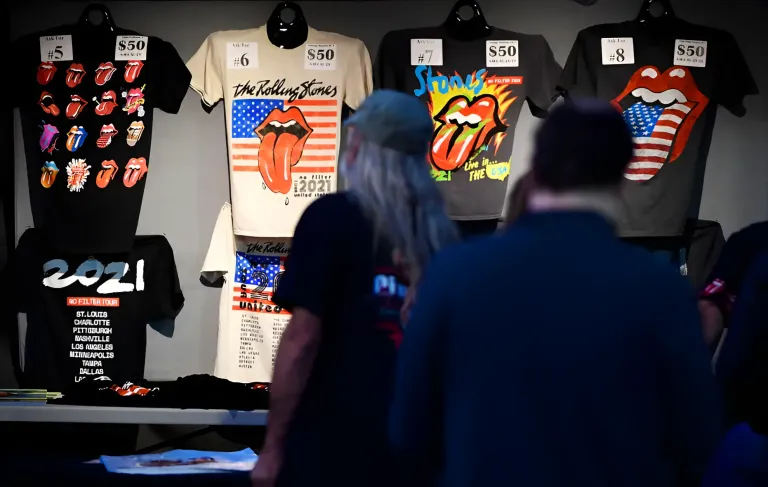Why Music Merchandise is the Best Clothing Business in 2025
Look, selling clothes in 2025 feels like trying to nail jelly to a wall most days. One minute, everyone loves green crop tops, the next minute, they are acting like green offended them. But there is one corner of the clothing world that keeps chugging along like that one friend who never gets hangovers, and that is music merchandise.
While most sellers are pulling their hair out trying to figure out what's cool this week, band merch sellers are living their best life. They have cracked the code by getting into something way more powerful than whatever algorithm is having a meltdown today.
There is no hiding, but the truth is music fans are crazy (count me in, too). They will camp outside arenas for tickets, get band logos tattooed, and yes, they will buy every single piece of merchandise their favorite artist has ever made. A Snoop Dogg fan today will still be a Snoop Dogg fan when they're shuffling around in shoes, complaining about kids these days.
I will give you an example, think about it as someone walks into a coffee shop wearing a Godsmack shirt and suddenly some strangers are debating which album was their peak while the barista rolls their eyes and makes another overpriced latte. Just to let you know, that shirt just created more genuine human connection than most people experience in a month of scrolling through their phones.
Music merchandise works well because it evokes emotions. That faded tour shirt from 1998 carries more sentimental value than most people's wedding rings. It represents that night when someone's favorite band played their favorite song and everything felt perfect for exactly 4 minutes and 37 seconds.
Talking about licensing... Official licensing of music merch is like having a golden ticket in this world. When fans see that little licensing mark, they know they are getting something legitimate instead of a copy that will fall apart faster than a boy band after their first hit. Licensed products mean the money actually goes to supporting the artists rather than funding someone's life choices.
Heard of The Beatles? They didn't become famous because they had great marketing consultants. They became legends by writing songs that people can't get out of their heads 50 years later. Sellers get to ride that wave without spending decades building their own reputation. Selling music merchandise means selling something for which someone else already did all the hard work of building brand recognition.
Even bands that formed last Tuesday probably have fans ready to throw money at any merchandise they produce. The connection between musicians and their followers creates an instant market that doesn't require focus groups or market research. If the band is good, people will buy their stuff. If the band is terrible, well, their moms will still buy their stuff.
Working with a Supplier of Official Band Merch becomes mandatory for anyone who wants customers to actually trust them. The market is flooded with rip-offs that look about as real as a unicorn riding a rainbow. When sellers can guarantee genuine licensed products, they separate themselves from the confusing alternatives that casually combust in the washing machine.
Concert and festival culture keeps demand flowing year-round like a musical conveyor belt. Live events create perfect moments when fans want to commemorate their experience with official gear.
Fans expect their band merchandise to survive nuclear winter and still look decent. They want items that will last through countless washes and years of wear because these pieces hold more sentimental value than family heirlooms. Nobody wants their favorite concert shirt to disintegrate like a vampire in sunlight after one trip through the laundry.
Music merchandise succeeds because it goes way deeper than just wanting to look trendy. It lets people demonstrate their musical identity, connect with fellow fans, and wear their passions like armor against a world. An Iron Maiden shirt tells everyone that this person has opinions about guitar solos and knows much about drum techniques.
This emotionality creates a market that stays strong even when everything is falling apart. People might cut back on fancy dinners and expensive vacations, but they will still find money to support their favorite artists through clothing.
As long as people find meaning in music, which seems likely considering humans have been making noise with instruments since someone first banged rocks together, music merchandise will keep up like that one plant that somehow survives no matter how badly someone rejects it.
